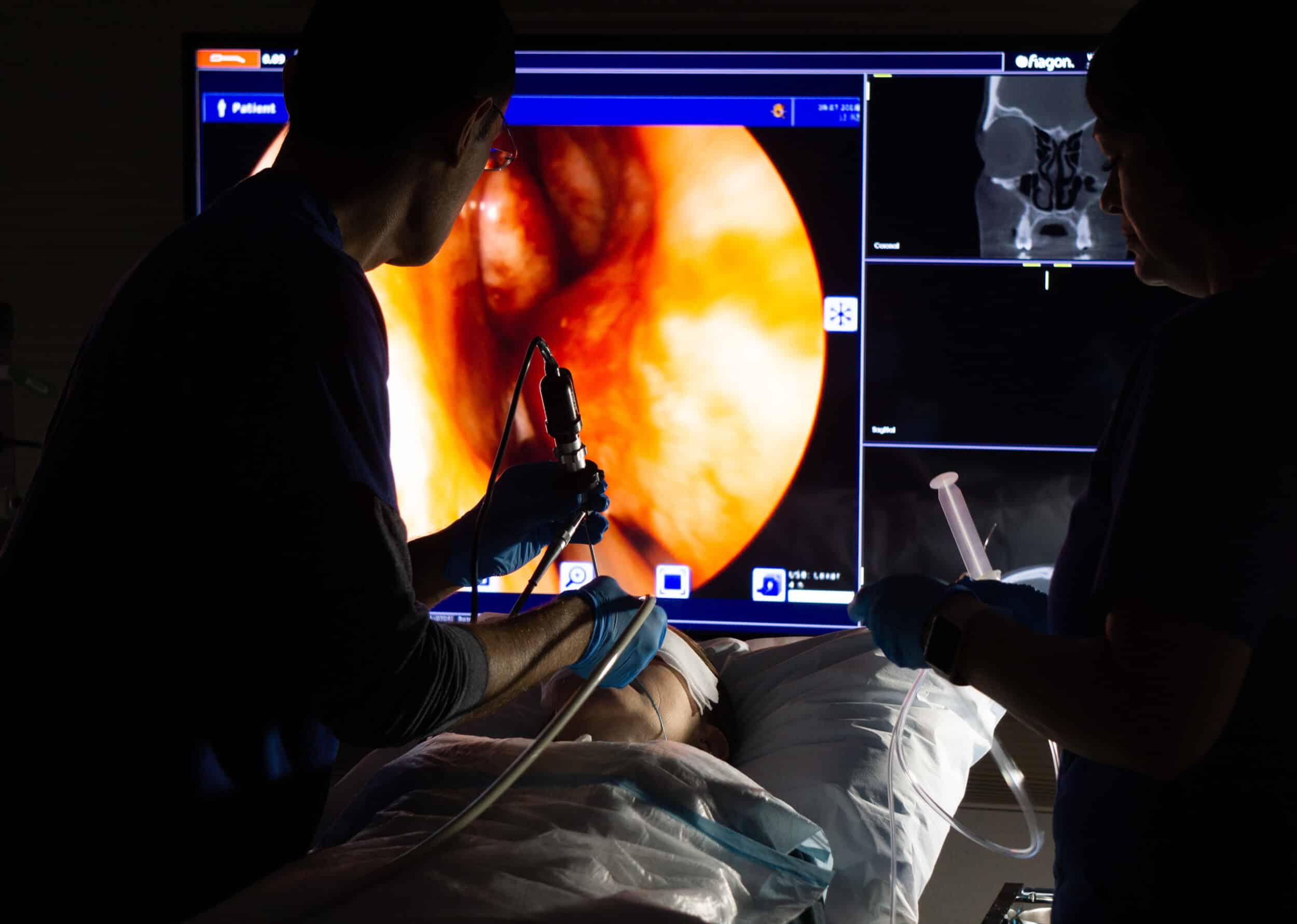It’s easy for us to say that having surgery in the office is a piece of cake, but we understand the anxieties that can come along with this. Dr. Sikand and his team strive to make sure that every patient is comfortable when preparing for balloon sinus surgery. Not only during the surgery, but also with the decision to have a procedure while being awake.

Dr. Sikand uses Vidscrip to record short videos answering frequently asked questions about Xpress balloon sinus dilation.
Balloon Sinus Surgery Preparation
1. One week before the surgery, stop all medications that can cause or worsen bleeding during and after the surgery . These include: NSAIDS (Non-Steroidal Anti-Inflammatory Drugs) such as ibuprofen (Motrin), naproxyn (Aleve), aspirin, Meloxicam, Celebrex, Advil, Excedrin and vitamins and herbal supplements including fish oil (Omega), Vitamin E, and gingko biloba. Prescription blood thinners such as Coumadin, Eliquis, or Plavix may need to be stopped for a few days prior. Dr. Sikand will contact the prescribing doctor or ask you to get a medical clearance.
2. Pick up prescriptions from your pharmacy and purchase supplies listed on your pre-procedure instruction sheet that you will need before and after the surgery.
3. Arrange for someone to drive you to and from the office. Although you may be awake during the procedure, the anti-anxiety medication taken before you arrive to the office can make you drowsy.
On the Day of Surgery
Before arriving to the office:
- Eat a normal breakfast. If your procedure is scheduled in the afternoon, also have a light lunch.
- You can take a shower, wear makeup, and use hair styling products.
- Wear loose comfortable clothing. It can get chilly in the treatment room, so long sleeves and pants are suggested in case you get cold.
- Two hours before your arrival time, take the anti-anxiety medication as prescribed.
- Expect to be at the office for 1-1.5 hours.
- Bring all prescriptions with you including rescue inhalers if you have pulmonary issues.
What Can I Expect During the Procedure?
- When you arrive, we will bring you to an exam room to take your vitals and start the numbing process.
- Your nose will be numbed with a series of topical medications to help open and numb the nasal passages. These include nasal sprays, a numbing gel, injections, and medications placed on cotton pledgets. This takes about 20-30 minutes.
- Once good anesthesia is achieved, a thin device with the balloon is guided through your nasal passages to your sinus. The balloon is gently inflated and then deflated. You may feel slight pressure and hear a “crackling” sound. Dr. Sikand will treat all necessary sinuses in the same manner. The balloon will then be removed and discarded. If other procedures were planned, those will be performed as well.
- Majority of our patients report not feeling any pain. 95% of patients asked said they felt minor pressure when the balloon is inflated or they didn’t feel anything at all.
Immediately After the Surgery
- Nasal packing is not required after the surgery. If you have a septoplasty, soft splints may be placed in each nostril to help protect the nasal tissue. These are generally removed in the office the following day.
- A nasal drip pad will be placed underneath your nose to collect drainage. You can change this gauze as often as you feel necessary. The drainage (“oozing”) or bleeding will lessen over the first 24 hours after surgery and typically goes away by the next day.
- The topical and local anesthetics used at the beginning of the surgery can cause the throat to feel numb for the first 1-2 hours after surgery. You may find that it is difficult to swallow or feel like you have something stuck in your throat. This is normal, so relax and stay calm. Use ice chips to help soothe the throat for the first few hours after surgery. DO NOT eat or drink anything until you can comfortably swallow. Sometimes your voice may change or you may not be able to talk right away, but this will go back to normal once the numbing medicine wears off.
- Once the procedure is done, we will move you to another room to let you recover for 10 to 15 minutes. A member of Dr. Sikand’s medical staff will go over your post-op instructions in detail with you and the person driving you home before being discharged from the office.